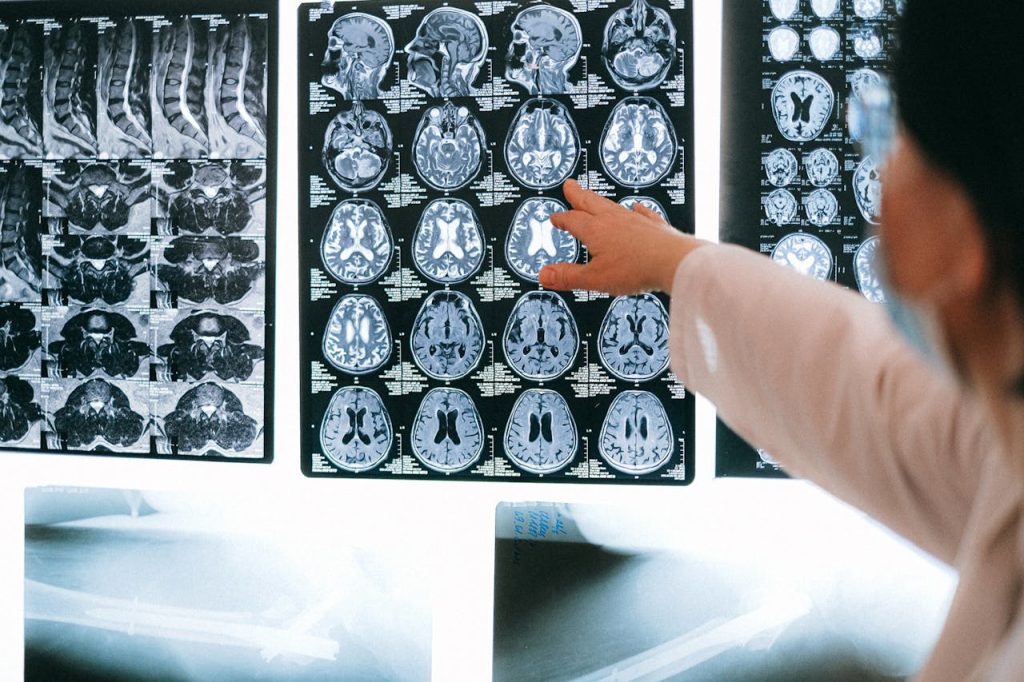Study Reveals Cancer Drugs May Treat Alzheimer’s

Potential Breakthrough in Alzheimer’s Treatment
A groundbreaking study suggests that a combination of two cancer drugs could offer a new approach to treating the most common form of dementia, Alzheimer’s disease. Researchers have identified a potential therapy that may reverse the brain changes associated with this debilitating condition, offering hope for millions affected by the disorder.
The research involved analyzing how Alzheimer’s alters gene expression in individual cells within the human brain. Scientists then searched for existing drugs that had already been approved by the U.S. Food and Drug Administration (FDA) and could induce opposite changes in gene expression. This approach aimed to find drugs that could potentially reverse the damage caused by Alzheimer’s in both neurons and glial cells, which are also affected in patients with the disease.
By examining millions of electronic medical records, the researchers found that patients who took certain drugs as part of their treatment for other conditions were less likely to develop Alzheimer’s. This discovery led them to test a combination of two top-performing drugs—both used in cancer treatment—in a mouse model of Alzheimer’s. The results were promising: the combination reduced brain degeneration and even restored memory in the mice.
Dr. Marina Sirota, a co-senior author of the study from the University of California, San Francisco (UCSF), emphasized the complexity of Alzheimer’s and the challenges it presents in terms of research and treatment. She noted that the team’s computational tools allowed them to tackle this complexity directly, leading to the identification of a potential combination therapy using FDA-approved medications.
Alzheimer’s disease causes a progressive decline in cognitive abilities, including learning and memory. Despite decades of research, only two FDA-approved drugs exist, neither of which significantly slows the progression of the disease. Dr. Yadong Huang, another co-senior author from UCSF, highlighted the difficulty in developing effective treatments due to the numerous genetic and protein alterations involved in the disease.
The researchers utilized publicly available data from three studies that measured single-cell gene expression in brain cells from deceased donors with and without Alzheimer’s. Using this data, they created gene expression signatures for the disease in neurons and glia. These signatures were then compared with those from the Connectivity Map, a database of drug effects on gene expression in human cells.
Out of 1,300 drugs tested, 86 reversed the Alzheimer’s gene expression signature in one cell type, while 25 did so in multiple cell types. Only 10 of these drugs had been approved by the FDA for use in humans. By analyzing anonymized medical records of over 1.4 million people aged 65 and older, the team found that several of the drugs seemed to reduce the risk of developing Alzheimer’s over time.
Dr. Yaqiao Li, the lead author of the study, described the process of narrowing down the drug candidates as akin to a mock clinical trial. From 1,300 drugs, the team eventually focused on five, with two being selected for laboratory testing. They predicted that one drug, letrozole, would target Alzheimer’s in neurons, while another, irinotecan, would help glial cells.
Letrozole is typically used to treat breast cancer, while irinotecan is used for colon and lung cancer. The team tested these drugs in a mouse model of aggressive Alzheimer’s with multiple disease-related mutations. The findings, published in the journal Cell, showed that the combination reversed multiple aspects of the disease in the mice. It corrected the gene expression signatures in neurons and glia, reduced toxic protein clumps, and restored memory.
Dr. Huang expressed excitement about the validation of their computational data in a widely used Alzheimer’s mouse model. He anticipates that the research will soon move to clinical trials to test the combination therapy in human patients. Dr. Sirota added that if independent data sources guide them to the same pathways and drugs, and if they can resolve Alzheimer’s in a genetic model, they may be onto something significant.
This study offers a promising step forward in the fight against Alzheimer’s, highlighting the potential of repurposing existing drugs to address complex neurological disorders. With further research and clinical trials, this combination therapy could provide a real solution for millions of patients worldwide.
Post a Comment for "Study Reveals Cancer Drugs May Treat Alzheimer’s"
Post a Comment